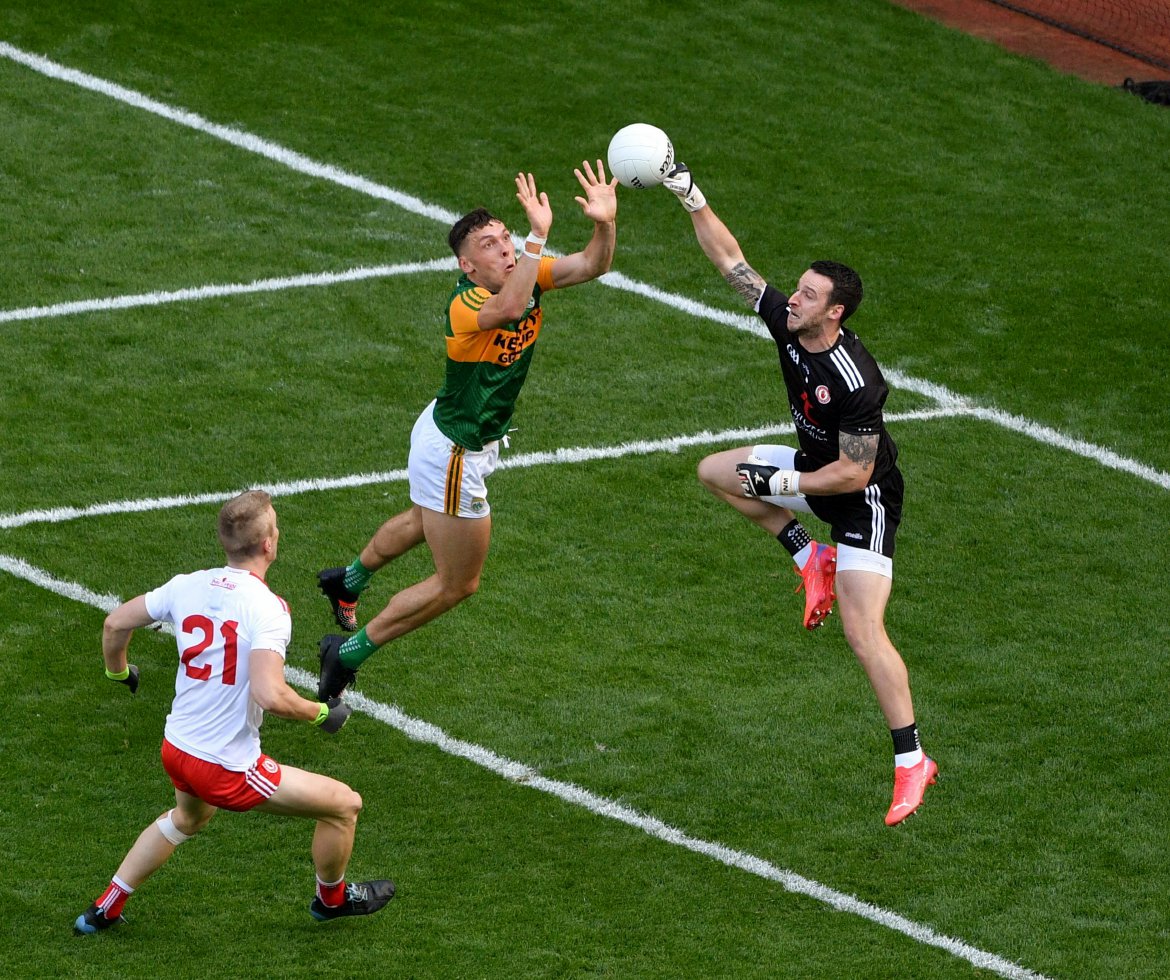- THIS week’s title stokes memories of that famous 1990 number one single of the same name, from Irish singer Sinead O’Connor.
- The song, originally written and sang by Prince, depicts the emotions of a heartbroken lover going through a difficult break-up and for the purpose of this week’s article it is a very fitting analogy in regards to the message I want to get across.
- I travel the length and breadth of the country coaching goalkeepers both young and old. Not every goalkeeper will require improvements in the same area. Everyone I have ever coached have had differing levels of ability and different areas requiring improvement. But without any doubt, one of the most common areas that I find I need to work on with most of the goalkeepers I work with would be about using unrealistic comparisons.
- I have a lot of goalkeepers who use unrealistic comparisons whenever they are evaluating their ability and
- or improvement. What I mean by this is that they compare themselves to something or someone that they have absolutely no reason to compare themselves to.
- This is a phenomenon that I have found to be far more common in younger goalkeepers than the older more mature generation. Growing up as a goalkeeper young ‘keepers want to emulate their heroes
- heroines so badly that they make direct comparisons between the top elite ‘keepers and themselves. And believe it or not, I have also had some senior ‘keepers also making the same misjudgements.
- This is not a good practice for any goalkeeper to partake in and as Sinead O’Connor’s song perpetrates a breakup, I would strongly urge any goalkeeper that is making unrealistic comparisons between themselves and top elite goalkeepers to ‘break-up’ with this practice and leave it behind. In the long term, this methodology will only serve to have detrimental effects on your goalkeeping performance.
- Comparing yourself to any other goalkeeper, never mind the top elite ‘keepers, is wrong.
- The only goalkeeper you need to be comparing yourself to is you! After all, you are the only goalkeeper you need to use as your measuring stick in regard to your improvement and
- or development as you only have control over yourself and no-one else.
- The best practice is to compare your own goalkeeping performance throughout each season. Comparing your own performances against each other allows you to have a more realistic approach as well as a more attainable outlook when setting your personal goals. Here is what I would suggest when looking to make comparisons with yourself.
- Firstly, you will need to use
- create a recordable system to score your goalkeeping performance. I use my own M.S.G. Goalkeeping Appraisal Model for my performance both in training and for games.
- Using this allows me to evaluate my performance by comparing me with me. Once you have decided upon a system to use for recording your performance the next stage is to evaluate yourself to create a base level.
- Using the system you have decided upon, record what you think your current performance and
- or goalkeeping abilities are. Why is it important to record a base level? It is important to record a base level as this will be the level you will compare your improvements to whenever it comes time to evaluate your performance levels.
- By measuring against your base level it will show you exactly how much you have improved or regressed over a certain timeframe.
- Examples of base measurements may be your ability to perform specific skills, how long you can kick the ball, how accurate you can kick the ball, body fat, peer feedback, speed etc.
- Once your base level is recorded, agree a timeframe for evaluating your performance and record your performance during that timeframe using the system you choose at the beginning.
- Set yourself some personal goals you would like to achieve by the end of your chosen timeframe making sure they are SMART in principle. Once your evaluation timeframe has been reached, set some time aside to evaluate your performance scores and personal goals to see if you have progressed or regressed.
- Whenever you evaluate your performance and you find that you have been able to progress yourself and improve, this then becomes your new base level. By updating your new improved base level, you need to understand that anything below this level is now unacceptable and needs to be improved by the next session or game.
- If you find that you have regressed whenever you evaluate your performance, then you keep the same base level and ensure that you improve it by the next evaluation period. For any regression in performance, it is vitally important for your development to understand why this regression has taken place. By understanding why it has happened, it then allows you to ensure that the same issues do not happen in your next evaluation period.
- You can continue this process for the season and then at the very end of the season you can complete a full evaluation of your performance throughout the whole season. What this now does is provide you with your base level for the next season and now allows you to set specific personal goals for future seasons.
- Couple this with the fact that you are only ever comparing yourself with your own performances and you have the emotional benefits of knowing what you are realistically capable of attaining SMARTER goals.
- Whenever you are comparing yourself with other goalkeepers just remember ‘Nothing Compares To You!’
- Email: pmgoalkeeping@hotmail.com
- Facebook: @MSoG11
- Twitter: @MorSchGk
